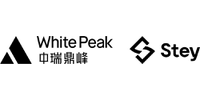Swedcham's China News Flash Webinar is a collaboration between the Swedish Chamber of Commerce in China and the security consultancy PSU China since March 2020. What's new in China News Flash 3.0?The purpose is to offer SwedCham members a regular, valuable and time-efficient update on the relevant business and industrial topics.
Risks and opportunities are closely linked; one rarely exists without the other. The ability to make well-considered decisions in China involves being able to assess and manage risk in an environment where culture and legislation are different from what a foreign management may be used to.
Third-party risks are often overlooked aspect of this risk management, especially the risk of third-party negligence, which can be surprisingly costly if not properly managed.
SwedCham and PSU, in collaboration with Wikborg Rein, invite you to Quarterly News Flash, where we will begin with a brief news update followed by a presentation by PSU and Wikborg Rein on third-party risks focused on third-party negligence. The review will focus on short case studies and best practices:
- The importance of well-functioning third-party audits. How can shortcomings in areas such as payment of social insurance at a supplier affect me as the customer?
- Employment contracts. If a supplier working at my office or factory does not have the correct contracts, how can this become my responsibility?
- How can we best prevent this? What measures should be considered essential during onboarding?
About Speakers:
Bård B. Bjerken, Managing Associate and Shanghai Representative at Wikborg Rein Advokatfirma AS
Lars-Åke Severin, Founder and CEO of the Security Consultancy firm PSU.
The webinar will be moderated by Malin Hammarén , GM of SwedCham China.
Welcome to read the below article written by Lars-Åke Severin, Founder and CEO of the Security Consultancy firm PSU.Download the full article by clicking here.
Third-party negligence, your problem?
"A small straw can break a camel's back"
When discussing business opportunities in China, it is only natural that we weigh the risks involved. One risk that often surprises foreign managers in China is the consequences tied to third-party negligence.
For instance, we frequently encounter shortcomings among suppliers working on-site, such as temporary workers from outsourcing companies or security firms, when conducting risk assessments at production facilities in China for many of our clients. These often relate to employment contracts and social security contributions. Such shortcomings can have consequences for the customer of a supplier. Let's look at one example.
Under Chinese law, employers are legally required to provide employment contracts to their employees and contribute to social security on their employees' behalf, including pension, medical, unemployment, work injury, and maternity insurance. Any attempt to waive an employer's obligation to contribute to social security in an employment contract or side agreement is null and void under Chinese employment law.
Furthermore, if a company uses a supplier (e.g., a guard company) that fails to fulfil its social security obligations, the client company (i.e., the factory or business using outsourced employees) may still face joint or partial liability if the supplier's employee (e.g., a security guard) files a complaint or lawsuit.
Chinese employment law and judicial practice recognize a duty of care for businesses using outsourced staffing or third-party services, such as security, cleaning, or logistics. These businesses must ensure that the service providers follow basic employment laws covering prompt wage payments, participation in social security, and lawful employment status.
However, what is crucially important yet often neglected are procedures for onboarding new suppliers. Internally, many businesses assume that compliance is monitored, but this is not always the case. Unfortunately, it is often left to the supplier to certify compliance with the requirements, but real compliance checks are rarely carried out.
Companies can face expensive consequences when individuals perceived to be someone else's responsibility make demands over pre-existing deficiencies. These deficiencies could have easily been identified if the client had compliance control procedures in place before signing the agreement with the supplier.
Not only should a business ensure that these deficiencies do not exist when signing the agreement, but they should also follow up on them regularly. We must remember that just because we do not identify a risk at one point in time does not mean that it cannot arise if we do not regularly follow up, work with risk management, and ensure independent risk and compliance audits.
This webinar is free of Charge for members. Welcome to sign up!
This Webinar will be conducted on Microsoft Teams platform. A Meeting link will be sent out to registered participants via email one day before the event.
Event Details
Date
August 29, 2025
(Friday)
Time
15:00 - 15:30, Beijing Time
Language:
English
Venue:
A Microsoft Teams meeting link will be sent out a day before the event
Ticket
Members: Free
Non- members: 100 rmb
Cancellation Policy
If you cannot attend this event for which you have registered, please cancel your registration no later than seven (7) business days prior to the event. If you fail to notify us of your cancellation in a timely fashion, you will be charged for the event costs.
Fapiao (VAT Invoice)
Apply fapiao when purchasing a ticket, by inputting the Chinese entity name and tax ID (if the title is wrong, you will be unable to receive the Fapaio). E-Fapiao will be sent to your e-mail within 7 days after completed event (check spam folder). If the fapiao can not be received, please provide an alternative email.
For inquiries related to fapiao, please email finance@swedcham.cn
Speakers

Bård B. Bjerken
Senior Lawyer, Managing Associate and Shanghai Representative at Wikborg Rein
More Information






























































